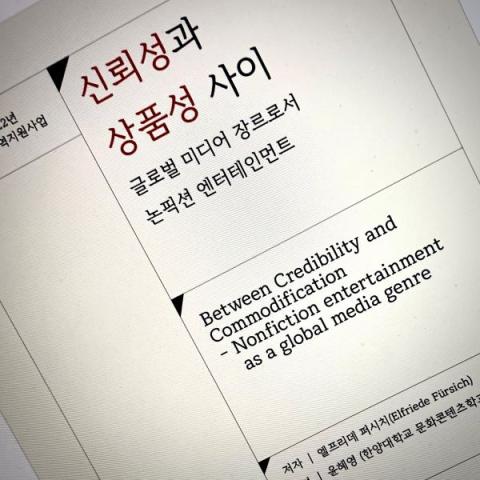
The impact of research conducted in the Department of Communication extends far beyond borders, contributing to a global dialogue on diverse topics. Scholars Caitlin Bruce and Elfriede Fursich have broadened the dissemination and accessibility of their findings by recently publishing in Spanish and Korean.
Associate Professor Caitlin Bruce, renowned for her investigations into the intersection of rhetoric, urban art, and cultural transformation, contributed an article titled "Mobilitat, efimeritat i economies turístiques: tour grafiter practicant running a León, Guanajuato" to the journal Debats. Bruce's work delves into the creation of a unique tour experience in León, Guanajuato, Mexico, intertwining running with the exploration of graffiti art. The article debates the economic and cultural significance of such endeavors in reshaping the urban landscape and identity of the city.
Bruce's prior fieldwork in León led to another Spanish publication entitled "Grafiti legal y evolucionado: De programas temporales, efímeros y politizados a una plataforma durable de aprendizaje, creación y empoderamiento" in Entretextos in 2019. In this publication, Bruce advocates and develops a model for a legal graffiti institute in the city.
Meanwhile, Associate Professor Elfriede Fursich has seen her research in global media studies garner international recognition. Her article, originally titled "Between Credibility and Commodification: Nonfiction Entertainment as a Global Media Genre," was recently translated into Korean by entertainment scholar Hye-Young Yoonin of Hanyang University, supported by a national grant. The translated work, titled "신뢰성과 상품성사이 글로벌 미디어 장르로서 논픽선 엔테인먼트," is now accessible on the Korean academic platform Dbpia.co.kr.
Fursich's project scrutinizes the institutional logic behind programming for global audiences, using Discovery Communications Inc. as a case study. By examining the evolution of nonfiction entertainment, Fursich illustrates the tension between traditional journalistic values and commercial interests in the media industry. Her work sheds light on the implications of this dynamic for independent documentary producers and public service television.
Besides publications in English and her native language German, some of Fursich's earlier work has been translated as well, further expanding the reach of her research on an international scale. An article addressing the issues of media representations of Others was published in Brazilian Portuguese, and an early theoretical intervention on the symbiotic but problematic relationship between commodification and communication was translated into Mandarin Chinese.
These translations underscore the significance of interdisciplinary scholarship and cross-cultural dialogue in tackling contemporary issues. As academia increasingly embraces linguistic diversity, the exchange of ideas across borders becomes ever more crucial in advancing knowledge and understanding within the global community.
